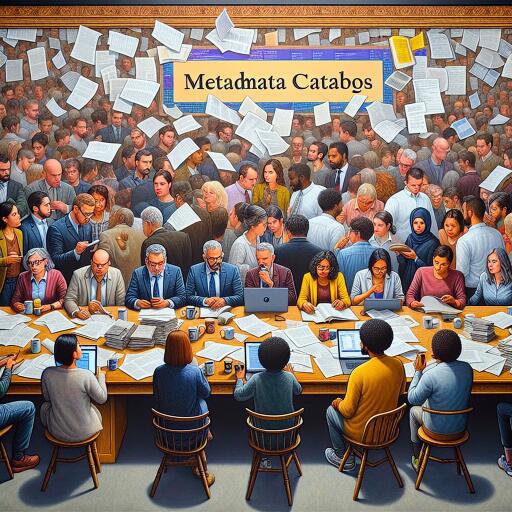Unpacking the Shifts in Data Lakehouses: Iceberg’s Rise and the Metadata Catalogue Vanguard
Revolutionizing advancements in the world of big data and data lakehouses marked this week, setting a new era of data management and processing. In a notable turn of events, the industry witnessed major players making strategic advances that promise to reshape the landscape of digital information handling.
In an exciting revelation, a leading cloud services provider announced the open-source initiative for Polaris, their newly developed metadata catalog underpinned by Apache Iceberg. This crucial move is poised to democratize data analysis, enabling users to utilize various query engines such as Spark, Flink, Presto, Trino, and the soon-to-be-integrated Dremio. Such versatility underscores a significant pivot towards openness and flexibility in data processing, ensuring users can harness the full potential of Iceberg’s efficient data management capabilities.
Further heating up the competitive arena, another tech giant signifies its strategic alignment by integrating Tabular into its fold, the visionary company behind Apache Iceberg’s creation. This acquisition not only reaffirms Iceberg’s dominance in the open table format battle but also marks a significant shift in the tech giant’s strategy towards embracing open standards, acknowledging the broader adoption and support Iceberg enjoys within the community over its proprietary Delta Lake format.
The essence of these developments lies in their profound impact on the big data ecosystem. Open table formats like Apache Iceberg have become the linchpin of modern data architecture, enabling seamless and coherent data access across diversified compute platforms without compromising data integrity. These formats are instrumental in facilitating a cohesive data lakehouse environment, combining the expansive capabilities of data lakes with the precise and structured approach of traditional data warehouses.
However, the innovation doesn’t stop at open table formats. The narrative extends into the emerging sphere of metadata catalogs – a vital cog in the data lakehouse mechanism. These catalogs serve as the central nervous system for lakehouses, optimizing data governance and ensuring secure and regulated access to data across platforms. The unveiling of Polaris as an open-source project fosters a collaborative ecosystem around metadata management, guiding the industry towards an open standard that could streamline data operations even further.
This leap towards openness is not without its strategic implications. The embrace of Apache Iceberg and the pivot towards an open-source metadata strategy signify a major shift in how tech giants perceive the value proposition of open data ecosystems. By aligning their strategies with the needs and demands of the user community for flexibility, transparency, and interoperability, these companies are not just contributing to the technological evolution but are also shaping the future course of the industry.
The initiatives to foster an open and interconnected data management environment come at a pivotal time. As enterprises delve deeper into the realms of artificial intelligence and machine learning, the demand for robust, scalable, and flexible data infrastructure has never been more critical. The strategic moves by these leading technology providers underscore a significant milestone in the journey towards realizing the dream of a truly open and seamless data ecosystem.
These advancements herald a new age for data management, promising a future where data mobility, governance, and processing are no longer siloed operations but part of a cohesive, interoperable framework. As the community gears up for the next wave of innovation, the foundations laid by open table formats and metadata catalogs are set to revolutionize the way we store, process, and analyze data, opening new frontiers for exploration and value creation in the digital economy.
The big data landscape is witnessing a transformative era where choices, flexibility, and the power of open source are leading the charge towards a more inclusive, efficient, and innovative future. The recent strides towards embracing and contributing to open standards mark a significant leap towards realizing an interconnected data ecosystem, one that promises to unlock unprecedented potential for technological innovation and value creation.









